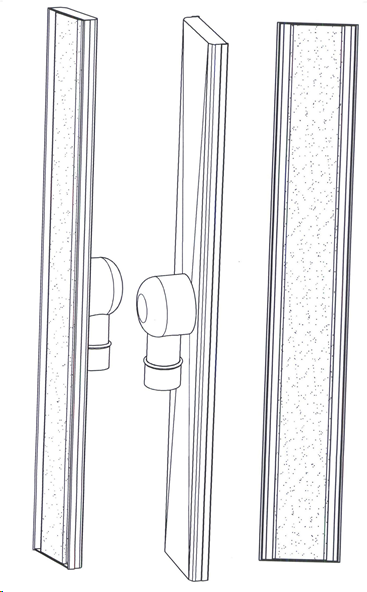General Court erred in law when it imposed the requirement on EUIPO to construct elements of earlier designs in assessing the novelty of a design
02-11-2017 Print this page Error in law in judgment of the General Court when it imposed the requirement on EUIPO to construct elements of earlier designs in assessing the novelty of a design. Rightly held that ‘sector concerned’ within meaning of Article 7(1) of the EU Designs Regulation is not limited to that of the product in which the contested design is intended to be incorporated or applied. The General Court erred in law when it imposed the requirement that the informed user of the contested design should know the product in which the earlier design is incorporated or to which it is applied.
Error in law in judgment of the General Court when it imposed the requirement on EUIPO to construct elements of earlier designs in assessing the novelty of a design. Rightly held that ‘sector concerned’ within meaning of Article 7(1) of the EU Designs Regulation is not limited to that of the product in which the contested design is intended to be incorporated or applied. The General Court erred in law when it imposed the requirement that the informed user of the contested design should know the product in which the earlier design is incorporated or to which it is applied.
ESS and EUIPO both appeal against a judgment of the General Court of the European Union of 13 May 2015. In this judgment, he General Court annulled the decision of the Third Board of Appeal of EUIPO in which was decided for a declaration of invalidity for a design of a shower drain.
According to the Court of Justice, General Court erred in law, in paragraphs 77 to 79 and 84 of the judgment under appeal, when it imposed the requirement on EUIPO that, for the purpose of assessing the novelty of the contested design, EUIPO should construct the earlier design from the various elements of one or more earlier designs in various extracts of Blücher catalogues attached to the application for a declaration of invalidity, even though the applicant for a declaration of invalidity had failed to reproduce in its entirety the design that it claimed to be earlier. According to the Court, it is for the applicant for a declaration of invalidity to produce a complete representation of that earlier design. Moreover, any potential combination would be flawed since it would necessarily entail approximations. it must be noted that the operative part of the judgment under appeal, in so far as it annuls the contested decision, is well founded. An error of law does not invalidate a judgment under appeal if its operative part is well founded on other legal ground.In the judgment under appeal in particular that the design that Group Nivelles claimed before EUIPO to be earlier was a complete drainage device for liquid waste offered by Blücher. Since EUIPO is not alleging any distortion in this regard, its argument that Group Nivelles referred to such a complete device for the first time at the stage of the action before the General Court cannot succeed.
The Court of Justice decides that the General Court was right to hold that the ‘sector concerned’, within the meaning of Article 7(1) of the EU Designs Regulation, is not limited to that of the product in which the contested design is intended to be incorporated or applied, because the wording of that article precluded a design from being considered to be new if an identical design had previously been made available to the public, regardless of the product in which that earlier design was intended to be incorporated or to which it was intended to be applied.
The General Court did not err in law when it held that an earlier design incorporated in or applied to a product that is different from the one to which the later design relates. If the General Court’s finding were to be followed, an applicant for a declaration of invalidity in respect of the contested design would have to prove not only that the earlier design had been made available to the public, within the meaning of Article 7(1) of the EU Designs Regulation, but also that the informed public of the design whose validity is contested knew that earlier design.
That would be tantamount to requiring an applicant for a declaration of invalidity to provide evidence of two disclosures: a first disclosure to those in ‘circles specialised in the sector concerned’ and a second disclosure to users of the type of product relevant to the contested design. Such a requirement, besides being incompatible with the interpretation of the phrase ‘sector concerned’ would add a condition that neither the letter nor the spirit of Article 7(1) of the regulation provides and would be irreconcilable with the principle arising from Article 10(1) of that regulation, according to which the protection granted by the Community design extends to ‘any design’ that fails to produce on the informed user a different overall impression.
Even though the General Court erred in law when it imposed the requirement that the informed user of the contested design should know the product in which the earlier design is incorporated or to which it is applied, it must be held that those findings are part of an analysis that led the General Court to conclude that the sector concerned is relevant for the purpose of assessing the individual character. That conclusion is not challenged by EUIPO in its appeal and therefore it follows that EUIPO’s third ground of appeal must be rejected as being ineffective.
IPPT20170921, CJEU, Easy Sanitary Solutions and EUIPO v Nivelles
C-361/15 P and C-405/15 P - EU:C:2017:720

















